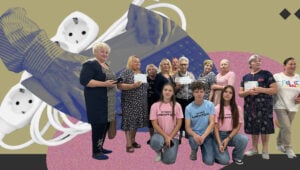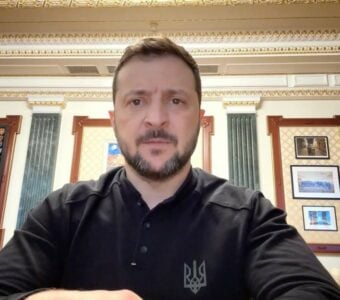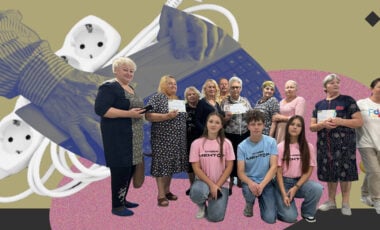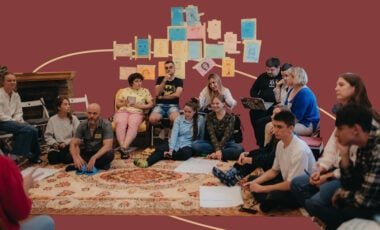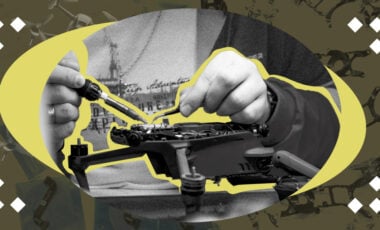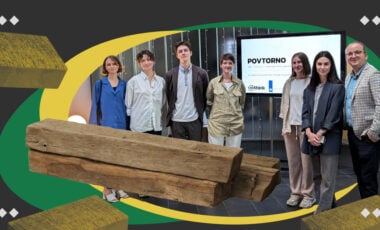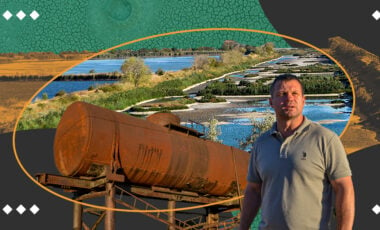How to provide IDPs with housing? Solution: restoring abandoned buildings
Building new permanent accommodation for internally displaced persons (IDPs) is time-consuming. Living in modular houses will be comfortable until the onset of cold weather. In Ivano-Frankivsk, caring people found a solution—restoring the dormitory to accommodate IDPs
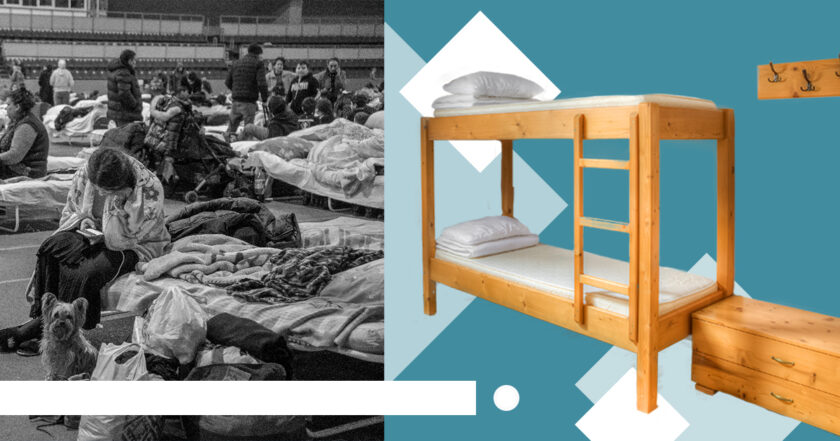
What is the problem?
Almost 8 million persons internally displaced due to russia's military attack have been registered in Ukraine. Millions of people have been left homeless, and more than 1.5 million have already turned to the state for help through the Diia government portal.
In the future, the state promises to take care of people who've lost their homes; they plan to build tens of thousands of new apartments for IDPs. In addition, they want to buy apartments in buildings that are almost finished but not put into operation.
What is the solution?
Restoring abandoned premises
At this stage, preparations are underway to construct new housing for internally displaced persons in 16 regions of Ukraine, with 2,000 apartments in each. The state plans to buy several thousand more from developers. In total, it's 32 thousand apartments. Deputy Head of the President's Office, Kyrylo Tymoshenko, stated this in an interview. Tymoshenko says the state will provide the displaced with apartments bought from developers for some time. "As soon as their permanent housing is rebuilt—also by the state—they will move to their apartments, houses, etc.," he said. "And we will provide these apartments to the military and other people who have been standing in line for years."
These 32,000 apartments, although a beneficial initiative, are a drop in the ocean of IDP needs, and these plans are just plans for now. Those who still live in gyms, schools, and kindergartens in communities that have sheltered IDPs need housing right now. One of the solutions already working is to rebuild abandoned housing and provide it to resettlers. In Ivano-Frankivsk, concerned residents, together with the displaced people, undertook to implement this solution. We explain how.
How does it work?
How to repair future housing for IDPs
It all started in early March when a finance professor at Ivano-Frankivsk National Technical University of Oil and Gas, Liliana Horal, offered to restore the dormitory, which stood empty in the city center for several years.
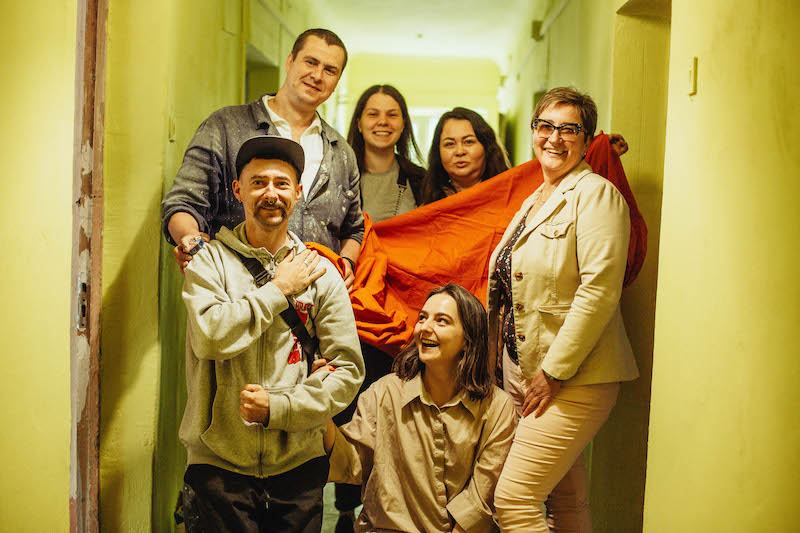
"At first, it would be a great exaggeration to call our actions a project," Liliana told Rubryka. "I just wanted to help people who lost their homes because of the war, suffered in these terrible and dark times, and went into obscurity. The University of Oil and Gas has many dormitories—all are handed over for accommodation. This one was uninhabited for more than five years—no electricity, no water, no heat. Universities can only repair dormitories if they are self-sustaining. Since no one lived here, there were no funds for its repair."
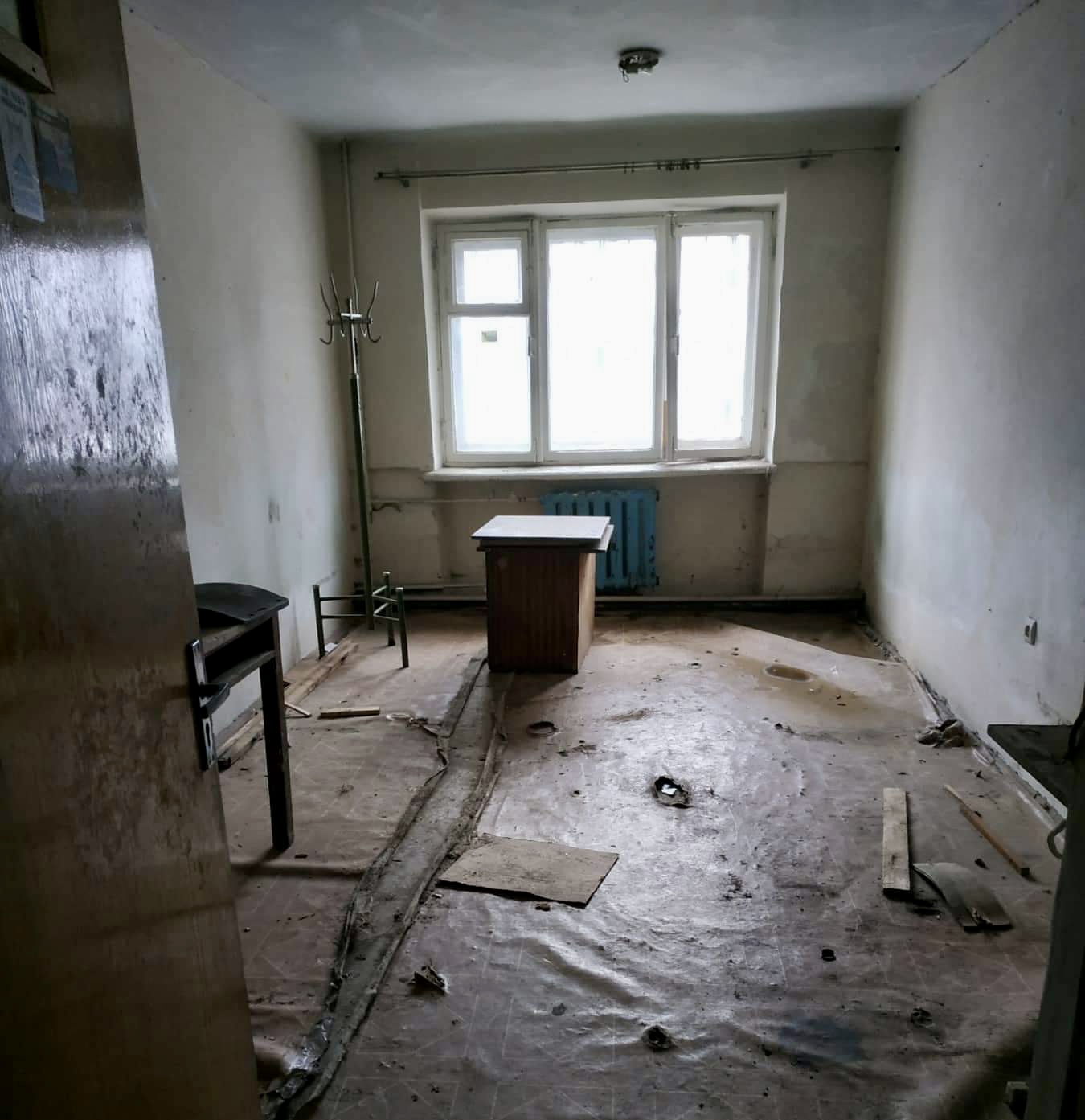
At that time, several evacuation trains came to Ivano-Frankivsk every day, and their passengers spent the night anywhere: gyms, schools, kindergartens, and warehouses of factories. Accommodating was chaotic; there wasn't enough space. The university, meanwhile, had an empty dormitory with four floors and 61 living rooms, where 61 families could live! With the rector's support, Liliana Horal wrote a post on Facebook saying that the university should give the dormitory a second life and encouraged former students and staff to join the initiative.
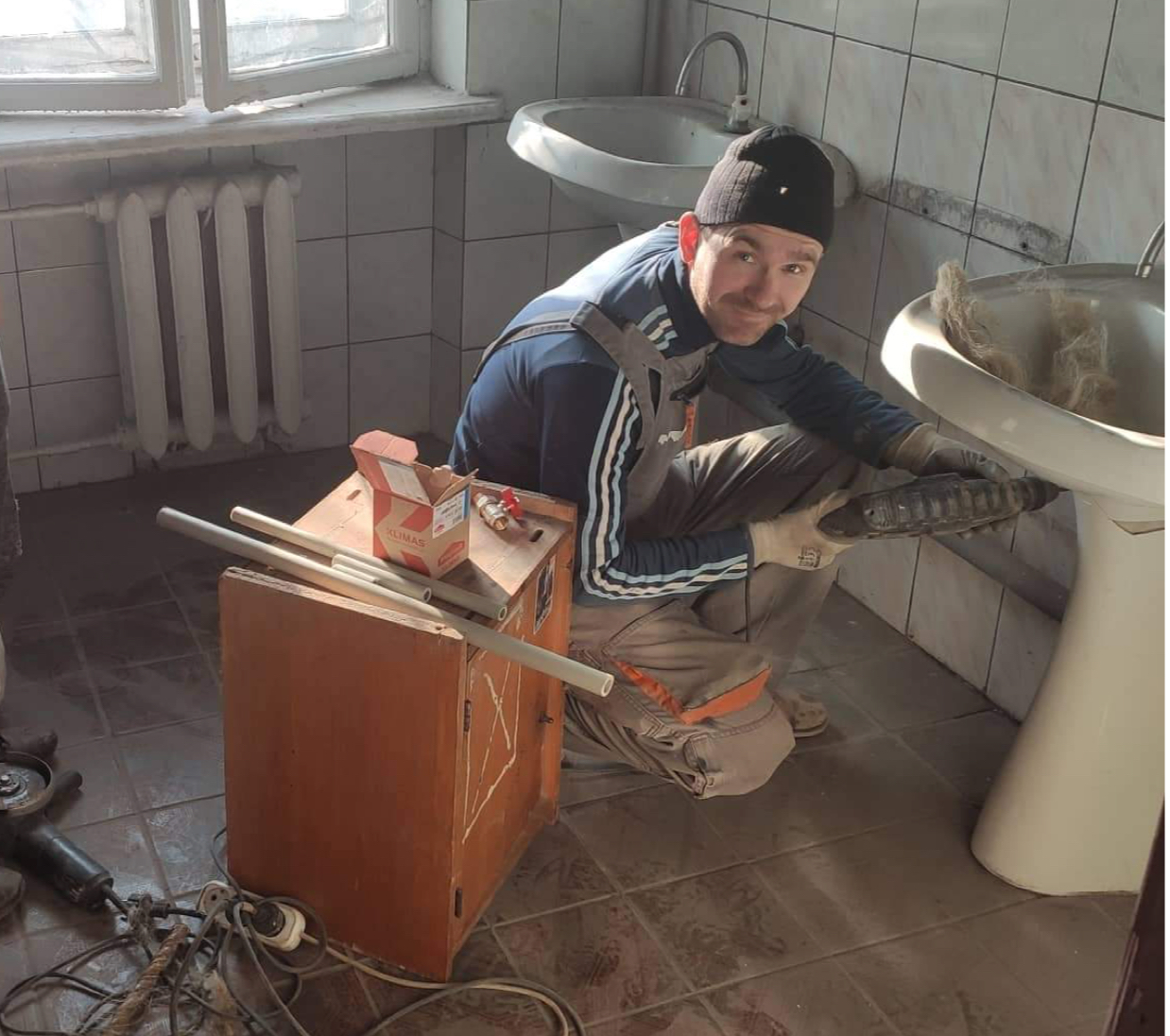
About 15 people gathered for the first community work. For the next two weeks, volunteers came to the dormitory every day: repaired water and heating networks, taps, sockets, lamps, replaced/inserted door locks, tore/glued wallpaper, pulled, washed, and brought things in. Every day they didn't stop writing on social media about everything they needed—glue, putty, wallpaper, curtains, dishes, beds, mattresses, pillows, and blankets. Liliana Horal and Iryna Perevozova, the Oil and Gas University's head of the entrepreneurship and marketing department, became active participants and coordinators of the entire process.
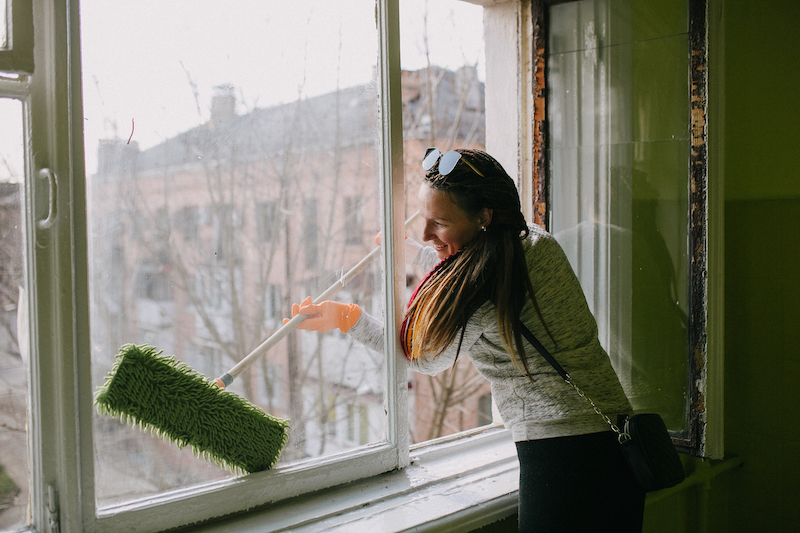
And people heard! The townspeople and settlers joined in as best they could: with labor, things, and utensils—everything they had. Local entrepreneurs joined the initiative: BlagoDevelopment provided wallpaper; the Maltese Service gave mattresses; local volunteers found pillows, blankets, towels, and bedding. After some time, the UN Development Program helped to purchase linoleum and 20 doors for the rooms, and the Research and Consulting and Practical Center for Business, Marketing, and Law became a supplier of household appliances. The regional military administration also supported the initiative, with which the university signed a memorandum of cooperation on accommodating IDPs.
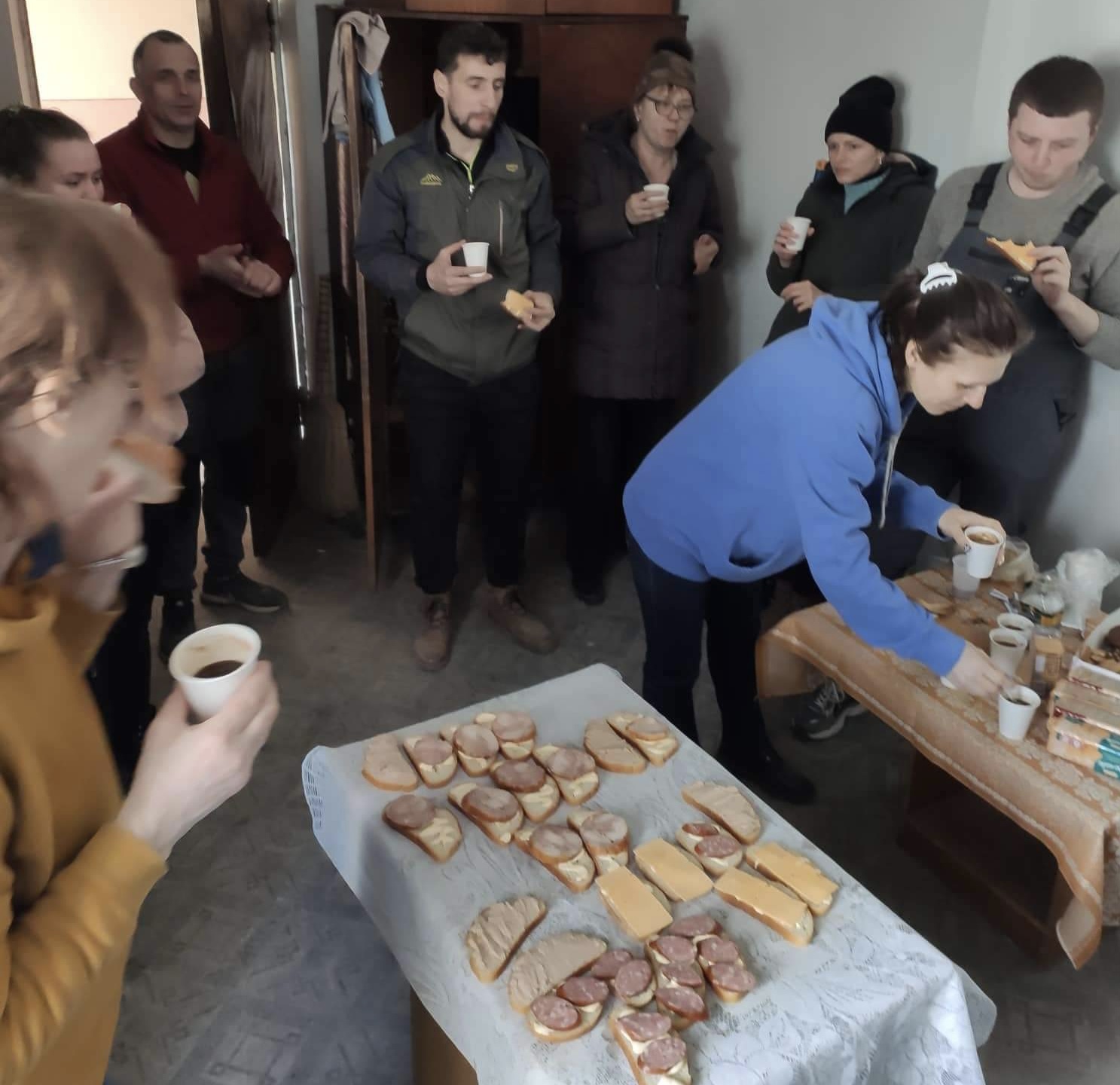
The volunteers who worked in the dormitory every morning until curfew included the IDPs from Kharkiv, Kyiv, Kropyvnytskyi, Irpin, Donetsk, Rubizhne, university staff, and residents of the city and region. "This time, spent together, was like rehabilitation and occupational therapy," Liliana recalls. "Everyone ran away from thoughts of war, of the horror it brought. We made coffee and sandwiches (as our new friend from Kyiv joked, 'professor's sandwiches'), then arranged hot lunches for volunteers, which was so homely! We became a family center. So the initiative had its name, Second Home IF."
Does it work?
Today, the dormitory has updated kitchen furniture, imported household appliances (washing machines, stoves, irons, multi-cookers, microwaves, kettles, etc.), renovated bathrooms, sinks, showers, and more. Thanks to the USAID Democratic Governance in Eastern Ukraine Program, the room furniture is still being renovated.
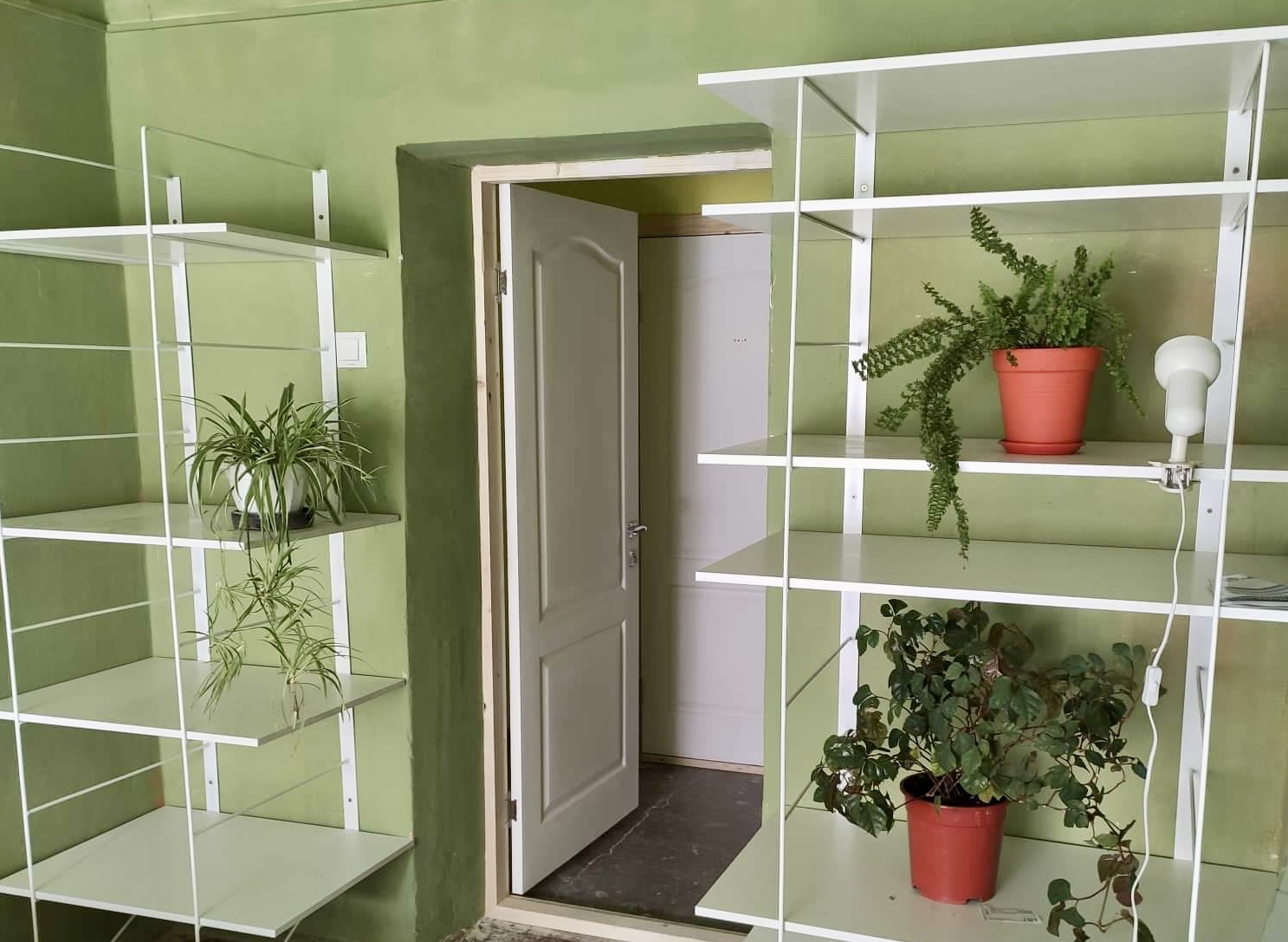
At the end of May, the first 50 people settled in the renovated and equipped dormitory. IDP families now live there, as planned. But after the war, the dormitory will return to its original purpose.
Liliana Horal believes such projects can be developed in other cities and towns, as millions of people have been left homeless, and abandoned buildings are in every community. "For Ukrainians not to feel unneeded by the state and communities, we must bring all buildings and structures that have been neglected for years to normal living conditions. With our own experience, we can advise anyone on administering."
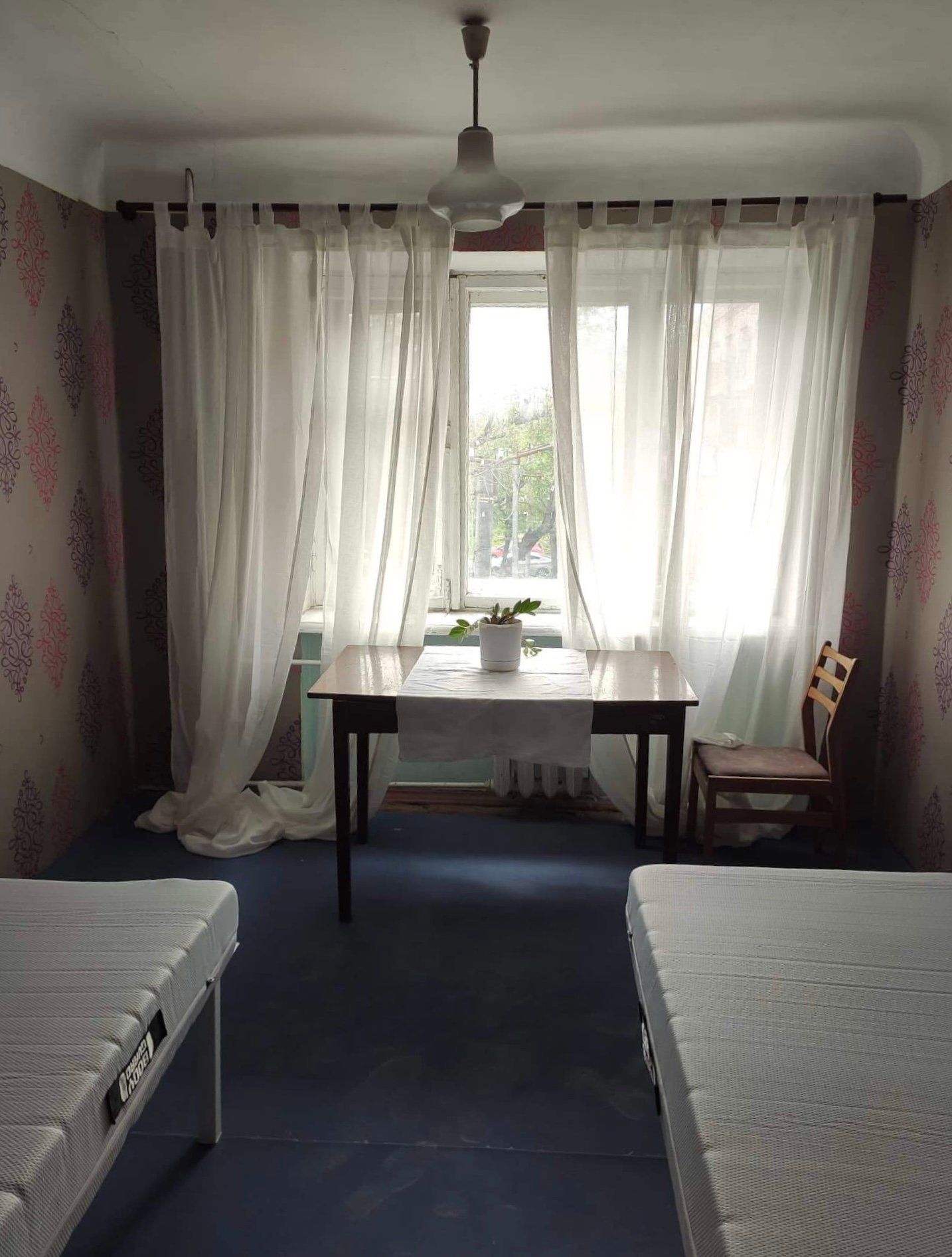
"For me, this project has probably become psychotherapy: when my son is in the Armed Forces, and grandchildren are abroad, I developed a survivor's guilt syndrome, which I could get rid of with daily communication and physical work," adds Liliana. "It convinced me once again that 'it's scary to the eyes, but hands do everything!' It is a pity that only the war made us understand we have such potential that we can restore an abandoned dormitory in two months! We will help the front and the Ukrainians, for whom Ivano-Frankivsk will become a second home!"
Even more helpful solutions!
When re-equipping the dormitory, the team of the MetaLab urban laboratory joined the Second Home IF initiative. This collaboration marked the beginning of a new dynamic and vibrant history of urbanization: the dormitory received a new room design, new technologies and materials, and new sponsors, volunteers, and professionals.
"We wanted to help people in terms of architecture, and we could see the demand for housing," says Anna Pashynska, co-founder of MetaLab. "Friends turned to us and looked for accommodation, and businesses moved. In particular, a business came to our marketspace, Parasolka, and had to settle about thirty families. We realized that no matter who we were trying to help now—businesses, universities, people in general—it was all about housing. So we researched different models of where to go. At first, we thought of finishing the bare apartments; then, we took up the dormitory because it is public property with a larger volume. And so we took part in the dormitory restoration project."
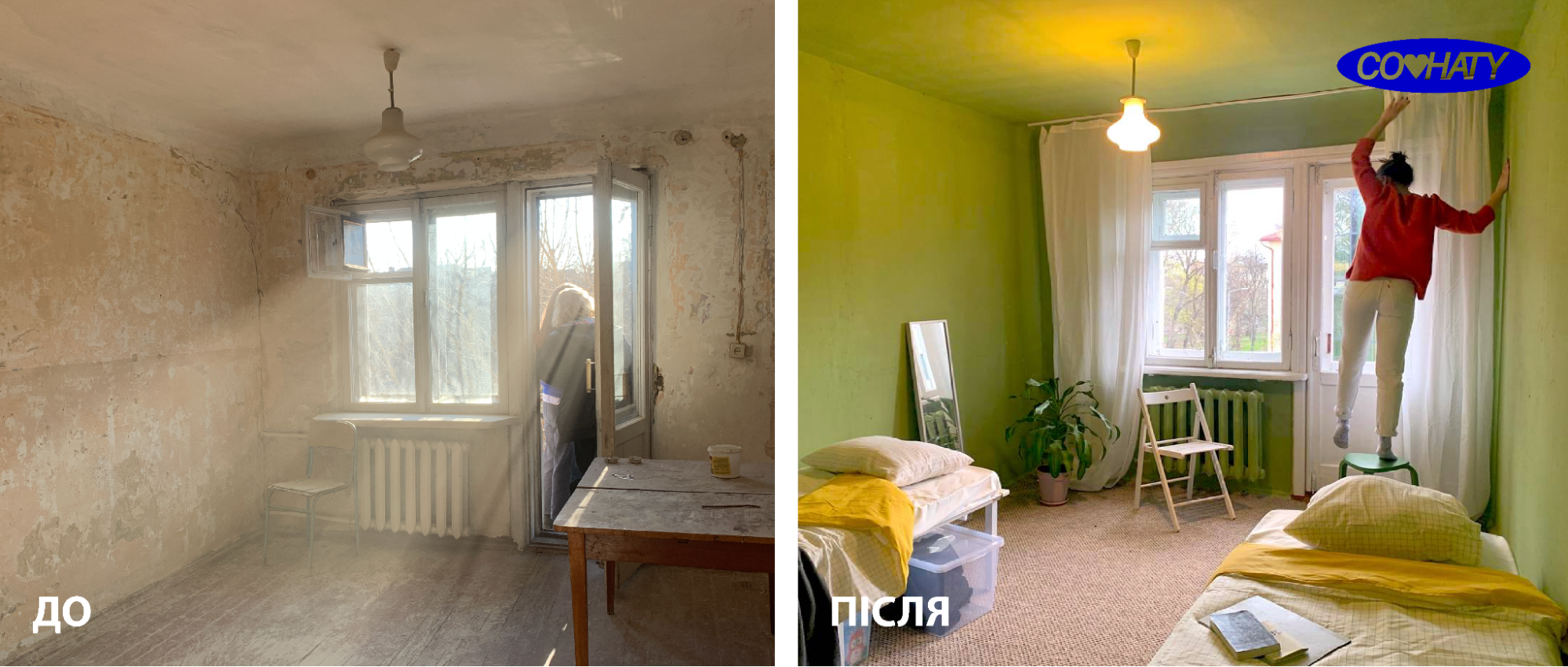
Kyiv and Kharkiv specialists (Urban Curators, Kyiv, and Critical Thinking NGO, Kharkiv) joined the MetaLab professional team. The team also included dozens of volunteers from different cities, including members of the Building Ukraine Together movement and dozens of partners from other cities and countries.
The dormitory became a pilot in a larger MetaLab project called KO-KHATY. Anna Pashynska says it was not easy to restart in the current situation. The first difficulty is that the country is at war. For example, buying materials doesn't work as everyone is used to. Development doesn't work as it could in early February. There was a specific difficulty in working with new people who came, with volunteers, to reprogram some productions for new needs. That is, reset everything to the current situation and understand that it is dynamic. Anna Pashynska calls the process "complexity management," constant management of dynamics and changes. Now the prospect is getting longer and a little easier. But one of the biggest challenges was to immediately navigate the area.
"When we decided to work on the dormitory, we had nothing—no money or tools. But our entire team was on the construction site in the first weeks. It was a manual mode; we were all there as financiers, forepeople, plasterers, and painters. Full involvement—round-the-clock, daily, of all team—helped us to start."
Most of the project volunteers are IDPs. Anna Pashynska says that one of the most constant helpers of MetaLab was a couple who moved from Donetsk in 2015. It has been a long time since they were forced to move, but they felt they wanted to help people who have now had a similar experience.
"The story of Volodymyr's family, another of our volunteers, is special for us. He and his wife and daughter came to Ivano-Frankivsk from Kharkiv about two months ago. At first, the family lived in a temporary shelter. Although it was difficult to organize life there, even for themselves, Volodymyr came to volunteer and help others. During the renovation, he seems to have done everything. He often worked with a spray for paint; we called him the spray gun operator. Now, when he lives in the dormitory, he continues to help with arranging everything and works on our new facility, the building of the former hotel. The value of KO-KHATY is precisely in this involvement and joint creation."
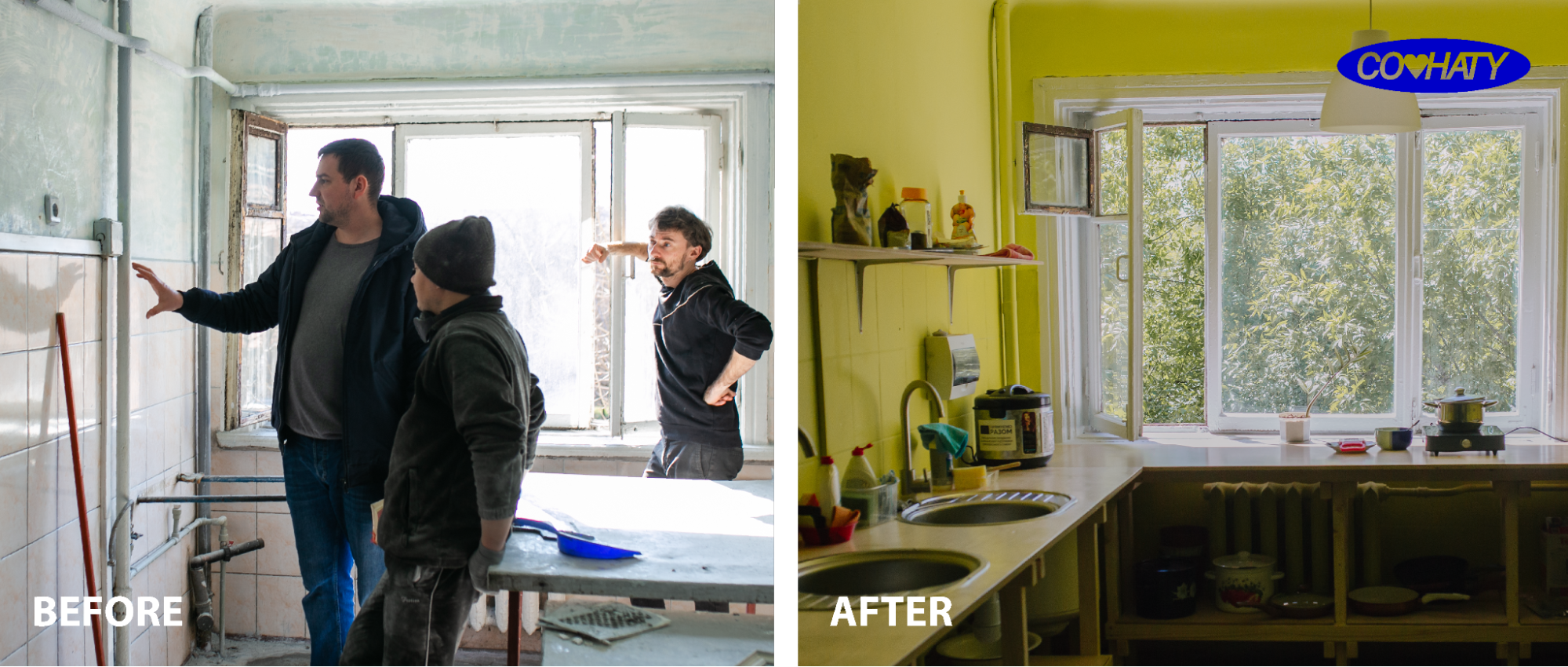
Now MetaLab is preparing to launch new facilities in Kamianets-Podilskyi and Kalush and is actively working with the mayor's office; they help find partners and buildings there. They also coordinate the company's actions and resettlement of IDPs, for example, signal situations when it is necessary to relocate people from shelters in schools and increase the capacity of IDPs to live. That is, the company is already working at a strategic level.
How to repeat this experience?
- MetaLab says the main thing is to have a strong desire and a great team. It may be small at first, but it should be the motivated people you trust who are not afraid of work and challenges. Having a group of people with a comprehensive and strategic approach is also great. After all, the work will not be easy.
- Working with the local authorities is vital because the military administration is now the main governing body. They are responsible for settling IDPs and should be aware of what you are doing in any case.
- Now the first chaos is over, and you can think about the conditions under which people live so that both the buildings and owners have reasonable expectations. It is essential for the safety of everyone in this situation to understand the rights, responsibilities, and conditions of the settlement. Be sure to sign contracts with all the premises and IDPs you will accept.
- MetaLab advises involving local volunteers and migrants as much as possible because it builds a community. People want to help and work because it gives psychological relief.
"This project is a manifesto of what I think an architect should be. There are different types of architects, and everyone has the right to exist. There is a vision of an architect as an artist, and creator, who delivers ideas of master plans, and ensembles. I consider myself and our team social architects or architects who provide services to society. Architecture is a tool that helps you in this world. Now we help to settle people in an environmental and participating way. It's very motivating when you look at the shelters and living conditions and hear human stories. No matter how tired you are when you come there and see it all, you get a strong push to keep working. We must create decent housing for people and consider the consequences of each of our actions," Anna Pashynska sums up.






